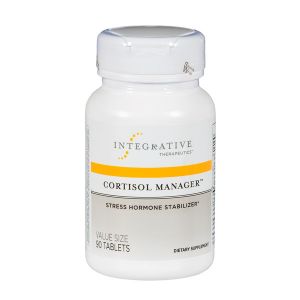Keeping Your Reproductive and Stress Hormones in Check During the Holidays

The holiday season can be a time of joy, connection, and celebration—but it can also become a whirlwind of stress, disrupted schedules, and overindulgence. This hectic time can wreak havoc on our hormones, particularly stress hormones like cortisol and reproductive hormones such as estrogen, progesterone, and testosterone. Maintaining balance during this period is key to protecting your health, mood, and well-being, allowing you to truly enjoy the festivities.
Why Hormonal Balance Matters During the Holidays
Your hormones don’t take a holiday break. Stress, changes in diet, alcohol, lack of sleep, and a disrupted routine can send your body into overdrive, causing fluctuations in cortisol levels and disturbing your reproductive hormone balance. This can lead to a host of symptoms, including fatigue, mood swings, menstrual irregularities, increased PMS, and even immune suppression.
Maintaining the delicate balance between stress and reproductive hormones is not just about surviving the holiday season—it's about thriving through it and feeling your best physically and emotionally.
How Stress Hormones Impact Reproductive Hormones
When we experience stress, the body releases cortisol and adrenaline to help us deal with perceived threats. While these hormones are crucial for short-term survival, prolonged elevation can lead to issues:
- • Lowered progesterone: Chronic stress can lead to an increase in cortisol production, which often comes at the expense of progesterone, a calming hormone in women. Low progesterone can cause anxiety, insomnia, and even irregular periods.
- • Reduced testosterone: In both men and women, chronic stress can lower testosterone levels, leading to fatigue, decreased libido, and mood changes.
- • Estrogen fluctuations: High cortisol can also affect estrogen levels, potentially causing menstrual irregularities, worsened PMS, and mood swings.
Tips for Balancing Your Hormones During the Holidays


1. Prioritize Stress Management
Stress is a major disruptor of reproductive hormone balance. Incorporating daily stress-reducing practices will help to keep cortisol in check, allowing reproductive hormones to function optimally.
- • Mindfulness practices: Meditation, yoga, or simply deep-breathing exercises can lower cortisol and support hormonal harmony.
- • Set boundaries: It’s okay to say no to extra holiday commitments. Prioritizing self-care helps prevent stress overload.
2. Eat for Hormone Health
The holiday season often brings an abundance of sugar and heavy foods. While it’s fine to enjoy some treats, focusing on a balanced diet helps keep stress and reproductive hormones in check.
- • Protein-rich foods: Protein supports stable blood sugar levels and provides the amino acids needed for hormone production.
- • Healthy fats: Fats like avocados, nuts, seeds, and fish support reproductive hormone balance and provide building blocks for hormone synthesis.
- • Limit sugar and alcohol: Excess sugar and alcohol can spike cortisol and lead to estrogen imbalances.
3. Maintain a Consistent Sleep Routine
Sleep is a vital regulator of cortisol, estrogen, and progesterone levels. Aim for 7-8 hours per night, even during the busy holiday period. To enhance sleep quality:
- • Wind down before bed: Limit screen time and incorporate calming activities like reading or gentle stretching.
- • Create a restful environment: Ensure your bedroom is dark, cool, and quiet to optimize sleep.
4. Exercise Wisely


Regular movement can lower cortisol levels and boost reproductive hormone balance. However, overdoing it can have the opposite effect, leading to cortisol spikes.
- • Opt for moderate exercise: Brisk walks, light strength training, or yoga are great choices.
- • Listen to your body: If you’re feeling fatigued, allow for rest days.
5. Support Your Reproductive Hormones Naturally
The stress of the holidays can throw reproductive hormones off balance, leading to symptoms like irregular cycles, heavy periods, or mood swings. Consider the following:
- • Herbal support: Herbs like Vitex (chasteberry) can support progesterone levels, while maca root may support overall hormonal balance.
- • Bioidentical hormone therapy: If you are experiencing significant disruptions, bioidentical hormones can help stabilize hormones during high-stress periods.
6. Adaptogenic Herbs for Stress Regulation
Adaptogens such as ashwagandha and Rhodiola rosea can support the body’s stress response and balance cortisol levels. By reducing stress, adaptogens indirectly support the function and balance of reproductive hormones.
Finding Balance Amidst Holiday Chaos
Achieving hormonal balance during the holidays isn’t about perfection; it’s about making intentional choices to support your body during a demanding time. By prioritizing stress reduction, mindful eating, sleep, and hormone-supportive practices, you can keep your stress hormones in check and maintain reproductive hormone balance. The result? More energy, fewer mood swings, and a greater sense of joy and calm that allows you to truly savor the season.
About Dr. Ruthie Harper


Dr. Ruthie Harper, MD, is the founder of Ruthie Harper MD, a renowned practice established in 1999 in Austin, Texas. With over 25 years of experience, she offers the latest services and techniques in health, wellness, and nutrition. Dr. Harper seamlessly integrates research, nutritional science, advanced functional testing, and cutting-edge aesthetics to develop scientifically-based health protocols. Her personalized interventions encompass nutrition, supplements, lifestyle changes, bioidentical hormones, and breakthrough anti-aging treatments. As a dedicated researcher, Dr. Harper has been a pioneer in integrative and functional medicine. Through her relentless efforts, she has empowered numerous patients to achieve their optimal health and wellness goals.



